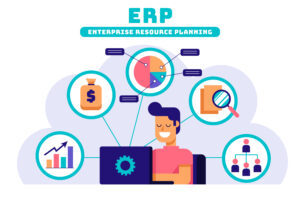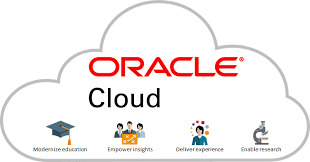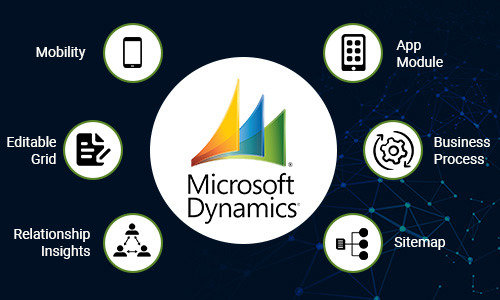#SAP Cloud for Customer Training
Explore tagged Tumblr posts
Text
The Evolution and Impact of ERP Software in the UAE: A Comprehensive Analysis
ERP stands for Enterprise Resource Planning. It is a type of software system that integrates and manages core business processes and functions within an organization. ERP software typically provides a centralized database and a suite of applications that automate and streamline business activities across various departments such as finance, human resources, supply chain management, manufacturing, sales, and customer service.
In the fast-paced landscape of business operations, efficient management of resources and information is critical for success. Enterprises in the United Arab Emirates (UAE) have witnessed a remarkable transformation in their operational efficiency and competitiveness through the adoption of Enterprise Resource Planning (ERP) software. This article delves into the evolution, benefits, challenges, and future trends of ERP software within the UAE context.
In recent decades, Enterprise Resource Planning (ERP) software has played a transformative role in how businesses in the United Arab Emirates (UAE) operate and manage their resources. This article delves into the evolution, adoption, and impact of ERP systems within the UAE's business landscape. By exploring the unique challenges and opportunities presented by the UAE's dynamic economy, we can better understand how ERP software has become an indispensable tool for organizations seeking efficiency, integration, and scalability.
Evolution of ERP Software
The adoption of ERP software in the UAE mirrors global trends but is uniquely shaped by regional business requirements and technological advancements. In the early 2000s, ERP systems gained traction among larger corporations seeking to streamline their complex processes. Major multinational ERP providers like SAP, Oracle, and Microsoft Dynamics established a strong presence in the region, catering to diverse industry needs including finance, manufacturing, retail, and logistics.
A notable development in recent times is the movement towards cloud-centric ERP solutions.This transition offers scalability, flexibility, and cost-effectiveness, allowing businesses in the UAE to manage their operations more efficiently. Local ERP vendors have also emerged, offering tailored solutions that cater specifically to the nuances of the UAE market, such as compliance with local regulations and cultural practices.
Challenges and Obstacles
Despite the numerous benefits, ERP implementation in the UAE is not devoid of challenges. One prominent obstacle is the high initial investment required for ERP deployment, including software licensing, customization, and training costs. For smaller businesses, this financial commitment can be prohibitive, leading to slower adoption rates among SMEs.
Cultural factors and change management also pose challenges. Embracing new technology often requires a shift in organizational culture and employee mindsets. Resistance to change, coupled with the need for extensive training, can hinder the successful implementation of ERP systems in the UAE.
Furthermore, data security and privacy concerns are paramount, especially in light of stringent regulatory frameworks such as the UAE's Data Protection Law. Ensuring compliance with local data protection regulations adds complexity to ERP deployment, necessitating robust cybersecurity measures and data governance protocols.
The Business Landscape of the UAE
The UAE is renowned for its vibrant economy, diversified industries, and strategic geographical location. Over the years, the country has emerged as a global business hub attracting multinational corporations, SMEs, and startups alike. Key sectors such as finance, real estate, construction, logistics, tourism, and manufacturing contribute significantly to the nation's GDP. However, this diversification has also brought complexities in managing business operations efficiently.
The Emergence of ERP Solutions
As businesses in the UAE expanded and diversified, traditional methods of managing operations became inadequate. The need for integrated systems that could streamline processes across departments led to the rise of ERP solutions. Initially developed to manage manufacturing processes, ERP systems evolved to encompass finance, human resources, supply chain, customer relationship management, and more. This evolution mirrored the growth and diversification of UAE businesses.
Factors Driving ERP Adoption
Several factors have fueled the adoption of ERP software among businesses in the UAE:
Global Competition: The UAE's aspiration to compete on a global scale necessitated advanced operational efficiencies that ERP systems could deliver.
Regulatory Compliance: The UAE's regulatory environment, including VAT implementation, required robust financial and reporting capabilities that ERP systems could provide.
Scalability: With rapid economic growth, businesses needed scalable solutions to manage increasing complexities.
Integration Needs: As businesses diversified, the need for seamless integration across functions became crucial.
Challenges in ERP Implementation
While the benefits of ERP systems are substantial, implementing them poses challenges:
Cultural Factors: Embracing technological change and adopting new systems can face resistance due to cultural factors.
Resource Constraints: SMEs may struggle with the limited resources required for ERP implementation and customization.
Data Security and Privacy: The UAE's focus on data security and privacy necessitates robust ERP solutions compliant with local regulations.
Impact of ERP on UAE Businesses
The impact of ERP software on businesses in the UAE has been profound:
Improved Efficiency: Streamlined processes lead to increased productivity and reduced operational costs.
Enhanced Decision Making: Real-time data availability empowers businesses to make informed decisions.
Better Customer Experience: Integrated systems ensure seamless customer interactions and improved service delivery.
Regulatory Compliance: ERP systems aid in meeting regulatory requirements efficiently.
Key ERP Players in the UAE
Several global and regional ERP providers cater to the UAE market, offering tailored solutions to meet local business needs. Major players include SAP, Oracle, Microsoft Dynamics, Sage, and Epicor, among others.
Future Trends and Innovations
Looking ahead, several trends are poised to shape the future of ERP software in the UAE. Artificial Intelligence (AI) and Machine Learning (ML) are increasingly integrated into ERP systems, enabling predictive analytics and automation of routine tasks. This enhances decision-making capabilities and further optimizes business processes.
Mobile ERP applications are also gaining popularity, allowing stakeholders to access critical business data on the go. The rise of Industry 4.0 and the Internet of Things (IoT) is driving demand for ERP solutions that can seamlessly integrate with smart devices and sensors, enabling real-time monitoring and control of operations.
Moreover, the convergence of ERP with other technologies like blockchain promises enhanced transparency and security in supply chain management, crucial for industries like healthcare and finance.
Conclusion
In conclusion, ERP software has become an integral component of the UAE's business ecosystem, driving efficiency, integration, and growth across diverse sectors. While challenges exist, the transformative impact of ERP systems on businesses in the UAE underscores their importance in navigating complex operational landscapes. As technology continues to evolve, so too will the role of ERP in shaping the future of business in the UAE.ERP software has emerged as a transformative tool for businesses in the UAE, driving efficiency, innovation, and competitiveness across industries. Despite challenges such as high costs and cultural adaptation, the benefits of ERP implementation are substantial, ranging from streamlined operations to improved customer satisfaction. Looking ahead, the evolution of ERP software in the UAE is poised to align with global technological advancements, incorporating AI, IoT, and blockchain to unlock new possibilities for business growth and development. As enterprises continue to navigate the digital landscape, ERP remains a cornerstone of strategic management, enabling organizations to thrive in an increasingly complex and dynamic marketplace.
In summary, ERP software has been a game-changer for businesses in the UAE, enabling them to streamline operations, enhance decision-making, and adapt to a rapidly evolving marketplace. As the UAE continues to position itself as a global economic powerhouse, the role of ERP systems will remain pivotal in supporting the growth and sustainability of businesses across various sectors.
2 notes
·
View notes
Text
SAP Basis

SAP Basis: The Backbone of Your SAP Landscape
SAP applications form the core of many modern enterprises. Financial data, customer interactions, supply chain logistics, and many other critical business operations rely on SAP’s robust solutions. But what powers these solutions? That’s where SAP Basis comes in.
What is SAP Basis?
In simple terms, SAP Basis is the technological foundation upon which SAP applications are built and run. It’s like the operating system specifically for your SAP world. Basis provides a set of middleware components and administration tools that ensure your SAP applications function smoothly and reliably.
Key Responsibilities of an SAP Basis Administrator
SAP Basis administrators are the unsung heroes of the SAP world, responsible for a wide range of tasks:
Installation and Configuration: Basis admins handle the initial installation and setup of SAP systems, ensuring they’re configured correctly for your business needs.
System Administration: They perform ongoing tasks like monitoring system health, applying patches and upgrades, and managing system resources.
Database Management: This includes database installation, configuration, backup and restore processes, and overall database health.
Performance Tuning: Basis admins identify bottlenecks, optimize settings, and ensure applications run at their peak.
User Management: Creating and managing user accounts, assigning roles and authorizations for secure access control.
Troubleshooting: When problems arise, these experts step up to diagnose and resolve issues promptly, minimizing downtime for the business.
Transport Management: They oversee the movement of code changes and configuration updates between different SAP environments (e.g., development, testing, production).
Components of SAP Basis
Some core components that make up SAP Basis include:
SAP NetWeaver: The core technology platform that provides the foundation for different SAP products.
ABAP Workbench: The development environment for creating custom ABAP code (SAP’s primary programming language).
SAP GUI: The graphical user interface used to interact with SAP systems.
Transport Management System: Tools for managing and tracking changes across SAP environments.
Solution Manager: A centralized platform for system monitoring, diagnostics, and support tools.
Why is SAP Basis Important?
Reliability and Stability: A well-managed SAP Basis system means your critical business applications will run smoothly, minimizing disruptions and downtime.
Performance: Basis expertise ensures that your SAP applications are optimized to deliver their best, promoting efficient business operations.
Security: Basis includes a suite of tools to manage user access, protect sensitive data, and ensure compliance with security standards.
Agility: A flexible Basis layer gives your business the ability to adapt to changing needs by scaling SAP deployments or introducing new components.
Becoming an SAP Basis Administrator
A career in SAP Basis is both challenging and rewarding. If you have a knack for technical troubleshooting, problem-solving, and enjoy working with complex systems, here’s how to get started:
Get a Technical Foundation: A background in computer science, database administration, or system administration is a strong starting point.
Gain SAP Expertise: Take SAP Basis training courses and explore online resources and tutorials.
Certifications: Consider getting SAP-certified in Basis administration to validate your skills.
Hands-on Experience: Look for internship or entry-level positions that allow you to work on real SAP systems.
The Future of SAP Basis
As SAP continues to evolve into a cloud-centric platform, Basis will adapt too. Knowledge of cloud technologies, containerization, and automation will become increasingly valuable for Basis administrators.
youtube
You can find more information about SAP BASIS in this SAP BASIS Link
Conclusion:
Unogeeks is the №1 IT Training Institute for SAP BASIS Training. Anyone Disagree? Please drop in a comment
You can check out our other latest blogs on SAP BASIS here — SAP BASIS Blogs
You can check out our Best In Class SAP BASIS Details here — SAP BASIS Training
Follow & Connect with us:
— — — — — — — — — — — -
For Training inquiries:
Call/Whatsapp: +91 73960 33555
Mail us at: [email protected]
Our Website ➜ https://unogeeks.com
Follow us:
Instagram: https://www.instagram.com/unogeeks
Facebook: https://www.facebook.com/UnogeeksSoftwareTrainingInstitute
Twitter: https://twitter.com/unogeek
2 notes
·
View notes
Text
sap hana admin online training in Mumbai
The Effectiveness of SAP HANA Administrator Online Training SAP Master HANA Administrator Training is a renowned certification program that will help you grow your career in the business world. This course will provide you with a wide range of technical skills, practical knowledge and insight, which will give you an edge over other candidates trying to land similar jobs. SAP hana Admin online training is far more effective and practical than the regular classroom training. It provides comprehensive knowledge of all features of SAP HANA system, which makes it much easy for the trainees to learn it according to their specific requirement. The SAP HANA Admin Training Course also goes beyond the basics to cover advanced topics and advanced customization of SAP HANA with full hands-on exercises. SAP HANA Administration Online Training provides you hands-on practice and a better understanding of SAP HANA Administration. This course will help you to master the topics through hands-on exercises and by practicing with virtual SAP HANA installations. SAP Hana Admin Online Training helps you understand the major components of SAP HANA and their functioning. At RH Soft Tech, we provide the complete knowledge on SAP HANA that will help you to establish your business with this software in a smoother way. Hana Admin Consultant - SAP Business Analyzer: you have the ability to design and implement complex SAP Business Analytics and Cloud based solutions. You will drive more than one project simultaneously with different business needs and models, working closely with organizational colleagues. Key Responsibilities: Develop and manage SAP Business Analytics (BAP) projects on SAP HANA, iSUPPORT, Clientapp and all client platforms; Deliver an end-to-end, strategic approach to the delivery of SAP BW multi-client analytics solutions in a timely manner by leveraging knowledge of industry practices, deliverables; Drive execution of solution concepts into functional specifications/deliverables ensuring that functional specifications aligns with business requirements; Monitor processes and ensure modification activities are executed as per strategy driven plan Hana Admin Consultant - SAP Business Analyzer: you have the ability to design and implement complex SAP Business Analytics and Cloud based solutions. You will drive more than one project simultaneously with different business needs and models, working closely with organizational colleagues. Key Responsibilities: Develop and manage SAP Business Analytics (BAP) projects on SAP HANA, isupport, Clientapp and all client platforms; Deliver an end-to-end, strategic approach to the delivery of SAP BW multi-client analytics solutions in a timely manner by leveraging knowledge of industry practices, deliverables; Drive execution of solution concepts into functional specifications/deliverables ensuring that functional specifications aligns with business requirements; Monitor processes and ensure modification activities are executed as per strategy driven plan
For More Details Please Visit our Website -
2 notes
·
View notes
Text
⏱️ Mastering Time Management with SAP: A Path to Efficiency ⏱️
In today's fast-paced business world, effective time management is a precious asset. Dive into the realm of SAP, where SAP FS-CD (Collections and Disbursements) emerges as a powerful tool to enhance your time management skills. Visit Noshtek.com SAP consultant in US/USA to explore how their solutions complement SAP and can help your organization excel in computing on the cloud, analytics for finance, and human capital management.
SAP: The Engine of Business Efficiency
SAP's role in streamlining operations.
SAP FS-CD's impact on financial asset management.
SAP FS-CD: Your Time-Saving Companion
This module is designed for collections and disbursements, providing automation, real-time data access, robust reporting, and customization to boost your efficiency.
Maximize Your Time Management
Invest in training and skill development.
Explore integration with automation tools.
Keep an eye on efficiency metrics within SAP FS-CD.
Elevate Your Time Management: Explore More
Unlock the potential of efficient time management with SAP FS-CD and experience a significant boost in productivity and effectiveness in your professional journey.
3 notes
·
View notes
Text
The Effectiveness of SAP HANA Administrator Online Training
SAP Master HANA Administrator Training is a renowned certification program that will help you grow your career in the business world. This course will provide you with a wide range of technical skills, practical knowledge and insight, which will give you an edge over other candidates trying to land similar jobs.
SAP hana Admin online training is far more effective and practical than the regular classroom training. It provides with comprehensive knowledge of all features of SAP HANA system, which makes it much easy for the trainees to learn it according to their specific requirement. The SAP HANA Admin Training Course also goes beyond the basics to cover advanced topics and advanced customization of SAP HANA with full hands-on exercises.
SAP HANA Administration Online Training provides you hands-on practice and a better understanding of SAP HANA Administration. This course will help you to master the topics through hands-on exercises and by practicing with virtual SAP HANA installations.
SAP Hana Admin Online Training helps you understand the major components of SAP HANA and their functioning. At RH Soft Tech, we provide the complete knowledge on SAP HANA that will help you to establish your business with this software in a smoother way.
Hana Admin Consultant - SAP Business Analyzer: you have the ability to design and implement complex SAP Business Analytics and Cloud based solutions. You will drive more than one project simultaneously with different business needs and models, working closely with organizational colleagues. Key Responsibilities: Develop and manage SAP Business Analytics (BAP) projects on SAP HANA, iSUPPORT, Clientapp and all client platforms; Deliver an end-to-end, strategic approach to the delivery of SAP BW multi-client analytics solutions in a timely manner by leveraging knowledge of industry practices, deliverables; Drive execution of solution concepts into functional specifications/deliverables ensuring that functional specifications aligns with business requirements; Monitor processes and ensure modification activities are executed as per strategy driven plan
Hana Admin Consultant - SAP Business Analyzer: you have the ability to design and implement complex SAP Business Analytics and Cloud based solutions. You will drive more than one project simultaneously with different business needs and models, working closely with organizational colleagues. Key Responsibilities: Develop and manage SAP Business Analytics (BAP) projects on SAP HANA, iSUPPORT, Clientapp and all client platforms; Deliver an end-to-end, strategic approach to the delivery of SAP BW multi-client analytics solutions in a timely manner by leveraging knowledge of industry practices, deliverables; Drive execution of solution concepts into functional specifications/deliverables ensuring that functional specifications aligns with business requirements; Monitor processes and ensure modification activities are executed as per strategy driven plan
2 notes
·
View notes
Text
ERP Systems for Small and Medium-Sized Businesses in Saudi Arabia: What to Consider?

What Is an ERP System
ERP stands for “Enterprise Resource Planning” and refers to a type of software system that manages and integrates a range of business processes across an organization.
ERP systems provide a centralized database that can be accessed by different departments within an organization handling various business processes such as finance, procurement, production, inventory management, human resources, and customer relationship management. ERP systems integrate these processes to provide a comprehensive view of the entire organization and help to improve operational efficiency and decision-making.
Market Trend for ERP Systems
Research and Markets, the global market research firm, indicates that the ERP software market in Saudi Arabia would grow at a rate of around 17.4% between 2020 and 2025, primarily due to escalating demand for business process automation and the need for data-driven decisions. A robust ERP system is the best way forward for any business to succeed.
Features of ERP Systems
That said, let’s take a look at some of the key features of a good ERP system.
Integration of different business processes and departments
Centralized database with real-time data
Standardization of business processes
Automation of routine tasks
Reporting and analytics capabilities
User access controls to ensure data security
Scalability to support the growth of the organization
Key Considerations for Choosing the Best ERP Software
There are several popular ERP systems in Saudi Arabia such as Oracle ERP Cloud, SAP Business One, Microsoft Dynamics 365, Sage 300, Infor ERP, and Hal Business Success ERP. However, you need to pay attention to the following factors while choosing the best ERP software system that would meet your needs.ConsiderationDescriptionBusiness needsThe system should be able to support the business processes that need to be automated or streamlined ScalabilityThe ERP system should be able to support the future growth of the organizationIntegrationThe ERP system should be able to integrate seamlessly with the organization’s other business applications or systemsCustomizationIt should be possible to customize the ERP system to meet the specific needs of the organizationUser friendlinessThe ERP system should be easy to use and the required training and support should be available for usersSecurityThe system needs to have adequate security features including data encryption and user access controls
ERP systems are thus designed to benefit small and medium-sized businesses, manage their resources and improve efficiency through streamlined business processes, improved decision-making, enhanced visibility and better collaboration. These systems support growth and customer satisfaction and drive the businesses to scale greater heights.
Source Link : https://halsimplify.com/blog/erp-systems-for-small-and-medium-sized-businesses-in-saudi-arabia-what-to-consider/
2 notes
·
View notes
Text
Your Reliable Indian SAP Business One Partner, Osswal Infosystem Pvt. Ltd.
Enterprise resource planning (ERP) solutions are the focus of Osswal Infosystem Pvt Ltd, a top provider of IT consulting and support services. As a reputable SAP Business One partner in India, we offer extensive ERP solutions that are specially crafted to satisfy the special needs of small and midsize enterprises (SMBs).
Our focus on the needs of our clients is what distinguishes Osswal Infosystem. Since every company is unique, we take the time to comprehend your particular requirements and difficulties. Our specialists collaborate closely with you to create a unique solution that supports your company's goals and promotes long-term expansion. We take advantage of SAP Business One's features to improve workflows, track business performance in real time, and optimize operations.
We are experts in SAP S/4HANA Cloud, the company's next-generation intelligent ERP solution, in addition to SAP Business One. SAP S/4HANA Cloud, which is based on the cutting-edge in-memory computing architecture, provides businesses with real-time insights, agility, and creativity. You may take advantage of the advantages of this cutting-edge ERP solution with our full implementation and migration services for SAP S/4HANA Cloud as certified partners.
At Osswal Infosystem, we prioritize developing enduring relationships with our clients. Our committed support team makes sure that your SAP solutions keep adding value and stay in line with your changing business requirements. To keep you ahead in the process of digital transformation, we provide ongoing upkeep, updates, and training.
Osswal Infosystem has established itself as a dependable SAP business one partner in India thanks to a track record of successful deployments and contented customers. We have a reputation for providing top-notch ERP solutions thanks to our dedication to excellence, technological know-how, and customer-centric approach.
Discover the Osswal Infosystem advantage and maximize your company's use of SAP ERP solutions.
2 notes
·
View notes
Text
Exploring the Top ERP Providers in India: Streamlining Business Operations
In today's fast-paced business environment, effective management of resources, streamlined processes, and data-driven decision-making is critical for sustainable growth. Enterprise Resource Planning (ERP) systems have emerged as powerful tools that integrate key business functions, enabling seamless collaboration and boosting overall productivity. India, with its vibrant business landscape, hosts a multitude of ERP providers offering comprehensive solutions. In this blog, we will delve into the top 11 ERP providers in India, exploring their key offerings, strengths, and how they empower businesses to achieve their goals.
Here Is The Top 11 ERP Providers
SAP India :
SAP, a global leader in enterprise software, has established itself as a frontrunner in the Indian ERP market. Renowned for its comprehensive suite of ERP solutions tailored for diverse industries, SAP offers modules covering finance, supply chain, human resources, customer relationship management, and more. With a strong focus on scalability, robustness, and the ability to handle complex business processes, SAP India provides reliable support, extensive training resources, and regular updates to help businesses stay ahead.

Oracle India :
Oracle, a prominent ERP provider, delivers integrated applications designed to streamline business operations. With modules spanning finance, procurement, manufacturing, sales, and customer service, Oracle ERP solutions cater to organizations of all sizes and industries. Its strength lies in handling large-scale enterprises, complex supply chains, and global operations. Oracle India boasts a robust customer base and offers comprehensive support, training, and implementation services to ensure successful ERP adoption.

Microsoft Dynamics 365 :
Microsoft Dynamics 365 is a popular ERP provider offering a unified platform for finance, operations, sales, and customer service. With a user-friendly interface and seamless integration with other Microsoft products, Dynamics 365 simplifies processes and empowers businesses to make data-driven decisions. Its cloud-based nature allows scalability, flexibility, and easy accessibility. Microsoft provides extensive support, regular updates, and a vibrant user community, making the implementation and maintenance of Dynamics 365 a smooth experience

Quickensol it solutions QuickenSol IT Solutions emerges as a reliable ERP service provider, offering comprehensive solutions tailored to meet diverse business needs.QuickenSol IT Solutions empowers organizations through its robust ERP services, innovative technologies, and customer-centric approach. From seamless integration to enhanced data visibility, QuickenSol IT Solutions is dedicated to helping businesses achieve their growth objectives and stay ahead in a competitive market. quickensol offers a module covering finance, education, real estate, agriculture, laboratory, e-commerce, healthcare, insurance, logistics, construction industry, project management, and manufacturing. Quickensol offers strong customer support, an extensive knowledge base, and regular feature updates, making it a popular choice for Indian organizations seeking a reliable ERP solution.

Tally Solutions: Tally Solutions has earned the trust of small and medium-sized businesses (SMBs) in India. Their ERP software focuses on accounting and inventory management, enabling organizations to handle financial transactions, track inventory, and generate accurate reports. Tally's user-friendly interface, affordability, and localization capabilities have made it a preferred choice for Indian businesses. Tally offers comprehensive training, robust support, and regular software updates to ensure effective financial management for SMBs.
Zoho ERP :
Zoho, a prominent player in the business software market, provides a comprehensive suite of applications, including ERP solutions. Zoho ERP covers finance, inventory management, CRM, HR, and more. Known for its affordability, ease of use, and customization options, Zoho ERP caters to businesses of all sizes. The cloud-based nature of Zoho ERP allows for seamless data access, collaboration, and integration across departments. Zoho offers strong customer support, an extensive knowledge base, and regular feature updates, making it a popular choice for Indian organizations seeking a reliable ERP solution.
Ramco Systems :
Based in Chennai, Ramco Systems is an Indian ERP provider renowned for its cloud-based ERP software. Ramco offers modules for finance, HR, supply chain, manufacturing, and more, targeting various industry verticals. Their ERP solutions emphasize mobility, automation, and analytics, enabling businesses to make informed decisions and achieve operational excellence. Ramco provides comprehensive support, an easy implementation process, and regular software updates, ensuring a smooth ERP experience for organizations.
Infor India :
Infor, a global provider of industry-specific ERP solutions has a strong presence in the Indian market. Infor India offers comprehensive ERP modules tailored to specific industry verticals such as manufacturing, healthcare, hospitality, and more. Their solutions focus on process efficiency, supply chain optimization, and customer engagement. With an intuitive interface and robust functionality, Infor ERP empowers businesses to drive growth, enhance productivity, and respond swiftly to market demands.
Epicor India :
Epicor is a renowned ERP provider offering industry-specific solutions designed to meet the unique needs of organizations. Epicor India's ERP modules cater to manufacturing, distribution, retail, and services sectors. Their solutions enable businesses to streamline operations, improve customer experiences, and gain actionable insights through advanced analytics. With a strong focus on automation, scalability, and digital transformation, Epicor empowers Indian businesses to compete effectively in a rapidly evolving market.
IFS India :
IFS, a global leader in ERP software, serves businesses across various industries in India. IFS India's ERP solutions encompass modules for enterprise asset management, field service management, manufacturing, and more. The company emphasizes functionality, flexibility, and usability to ensure seamless adoption and improved operational efficiency. With their customer-centric approach and industry-specific expertise, IFS empowers organizations to optimize processes, enhance productivity, and achieve growth objectives.
Sage India :
Sage is a leading provider of ERP solutions, offering modules for finance, accounting, inventory management, and more. Sage India's ERP software caters to small and medium-sized businesses, providing them with robust tools to manage core business functions effectively. With a focus on simplicity, customization, and scalability, Sage empowers organizations to streamline operations, gain better financial visibility, and make informed decisions. Sage's commitment to customer support and continuous innovation has earned them a strong reputation in the Indian market.
Conclusion :
Selecting the right ERP provider is a crucial decision for any organization aiming to streamline operations and drive growth. The top 11 ERP providers in India, such as SAP India, Oracle India, Microsoft Dynamics 365, Quickensol IT Solution, Tally Solutions, Zoho ERP, Ramco Systems, Infor India, Epicor India, IFS India, and Sage India, offer diverse ERP solutions tailored to meet specific industry requirements. These providers empower businesses with advanced features, scalability, robust support, and seamless integration, enabling them to optimize processes, make data-driven decisions, and achieve their growth objectives. Careful evaluation of business needs, industry focus, and the unique capabilities of these ERP providers is essential to select the best fit for organizational success.
6 notes
·
View notes
Text
Future Proof Your Career with Skill Development Courses
In today's rapidly evolving job market, staying ahead requires continuous learning and skill enhancement. Skill development courses offer a structured path to acquire new competencies, making you more adaptable and competitive. Whether you're aiming to advance in your current field or transition to a new one, these courses are invaluable.
Why Skill Development Matters
Investing in skill development is crucial for career growth. It not only boosts your employability but also enhances your confidence and productivity. In a world where industries and technologies are constantly changing, keeping your skills updated ensures you remain relevant and valuable to employers.
Top Online Course Platforms in India
India boasts several reputable online learning platforms that cater to diverse educational needs. Here are some of the best online course platforms in India:
Find Right Job
"Find Right Job" is a platform dedicated to connecting job seekers with suitable employment opportunities. By leveraging advanced algorithms and a user-friendly interface, it streamlines the job search process, making it more efficient and tailored to individual preferences

Udemy Offers a vast array of courses across various subjects, making learning accessible to all.

edX Founded by Harvard and MIT, edX provides high-quality courses from leading institutions, covering a wide range of disciplines.

Unacademy An Indian platform offering free and paid courses in academic and professional domains, as well as entrance examinations.

Coursera Provides university-level courses, certifications, and degrees in partnership with top universities.

Skillshare Focuses on creative and entrepreneurial courses, ideal for those looking to enhance their creative skills.

Online Digital Marketing Course with Placement
Digital marketing is a dynamic field with immense career opportunities. Enrolling in an best online digital marketing course with platfomrs offers placement assistance can be a strategic move. For instance, Kraftshala's Marketing Launchpad is a 19-week program that includes an 8-week paid internship and placement support, aiming to place students in top companies with salaries up to ₹9 LPA.
SAP Online Course with Placement
SAP expertise is highly sought after in various industries. An SAP online course with placement support can equip you with the skills needed to manage business processes efficiently. These courses often include practical training and job placement assistance, ensuring you're job-ready upon completion.
Salesforce Marketing Cloud Online Training at Find Right Job
Salesforce Marketing Cloud is a leading platform for customer relationship management. Online training programs focusing on Salesforce Marketing Cloud provide in-depth knowledge and practical skills. Platforms like Find Right Job offer specialized training that prepares you for roles in digital marketing and CRM, enhancing your employability.
Conclusion
Future-proofing your career through skill development courses is a proactive approach to professional growth. By leveraging top online platforms and enrolling in courses with placement support, you can acquire valuable skills that open doors to new career opportunities. Investing in your education today ensures a successful and adaptable career tomorrow.
0 notes
Text
SAP Business Technology Platform (BTP) is considered future-proof due to several key factors that align with emerging technological trends and business needs. Here are the main reasons why:
1. Cloud-Native and Scalable Architecture
SAP BTP is designed with a cloud-first approach, ensuring it scales seamlessly with growing data, user demands, and business operations. With cloud-native architecture, it can easily integrate with existing cloud infrastructure, which ensures it's adaptable to future cloud advancements.
2. Open Standards and APIs
The platform is built around open standards, ensuring flexibility and ease of integration with third-party applications, systems, and services. This openness fosters future innovation and helps the platform remain compatible with new technologies and services as they emerge.
3. Advanced Integration Capabilities
SAP BTP integrates both SAP and non-SAP solutions. This allows businesses to leverage various technologies across their entire enterprise ecosystem. With tools like SAP Integration Suite and SAP Business Application Studio, businesses can continuously integrate new applications, AI tools, IoT devices, and more into their existing environment.
4. Continuous Innovation
SAP BTP benefits from SAP's continuous investment in R&D, ensuring that it stays ahead of the curve by integrating the latest in machine learning, AI, analytics, IoT, and blockchain. SAP regularly updates the platform to support cutting-edge technologies and to cater to evolving market demands.
5. Security and Compliance
SAP BTP places a strong emphasis on security, ensuring data privacy, encryption, and compliance with global standards (like GDPR). With businesses becoming more globally connected and regulatory requirements evolving, SAP ensures that its platform adapts to these shifts in privacy and data protection.
6. Extensibility and Customization
SAP BTP enables businesses to extend and customize applications, supporting both low-code and no-code development. This empowers organizations to innovate quickly and address future business requirements without being constrained by legacy systems or complex coding.
7. Data-Driven Decision Making
With built-in data management and analytics tools like SAP HANA and SAP Analytics Cloud, businesses can use real-time insights to make better decisions. As data becomes even more central to business strategies in the future, SAP BTP's robust data management ensures businesses can adapt and stay ahead.
8. Support for Hybrid IT Landscapes
Many businesses still operate in hybrid IT environments with a mix of on-premise and cloud solutions. SAP BTP is designed to integrate and unify these environments, ensuring that organizations don’t have to worry about getting locked into a single vendor or platform.
9. End-to-End Value Chain Coverage
SAP BTP supports end-to-end processes across various industries, offering comprehensive solutions for everything from supply chain management to HR, procurement, and customer engagement. This ensures that businesses can continue to optimize and expand their operations without needing to adopt new platforms as they evolve.
10. Collaboration with Emerging Technologies
The platform embraces technologies like AI, machine learning, and IoT, ensuring businesses can integrate the next wave of innovations into their operations. As these technologies continue to develop, SAP BTP will evolve to accommodate them, providing future-proof solutions.
By being flexible, scalable, and always aligned with the latest trends in technology, SAP BTP ensures that businesses can future-proof their enterprise systems and operations.
Mail us on [email protected]
Website: Anubhav Online Trainings | UI5, Fiori, S/4HANA Trainings

0 notes
Text
Top SAP B1 Companies in Mumbai Driving Digital Transformation
In today’s fast-paced business world, SAP B1 Companies in Mumbai are helping organizations leverage SAP Business One Solutions to streamline their operations and gain a competitive edge. Mumbai is home to numerous businesses that require advanced ERP solutions, and these companies play a crucial role in ensuring seamless enterprise resource planning (ERP) integration. They help businesses optimize workflow and improve decision-making. With growing demand for automation, efficiency, and real-time analytics, choosing the right SAP B1 partner is essential for business growth.

Why Businesses in Mumbai Need SAP B1 Solutions
Mumbai, being the financial capital of India, is home to a diverse range of industries, from manufacturing and retail to IT and finance. To keep up with the market demands, businesses are adopting SAP Business One Solutions to improve operational efficiency, data management, and decision-making.
Key Benefits of SAP B1 Solutions:
Comprehensive Business Management – Integrates all key business processes into a single system.
Enhanced Productivity – Automates routine tasks, reducing manual effort and errors.
Data-Driven Insights – Provides real-time reports and analytics for informed decision-making.
Scalability – Adapts to the growing needs of businesses.
Regulatory Compliance & Security – Ensures adherence to industry regulations while safeguarding sensitive data.
Leading SAP B1 Companies in Mumbai
There are numerous SAP B1 Companies in Mumbai that specialize in implementing and customizing SAP Business One Solutions for businesses across various industries. These companies provide end-to-end support, from consultation and implementation to post-deployment assistance.
How to Choose the Right SAP B1 Partner:
Industry Expertise – Select a company with experience in your business sector.
Customization & Integration – Look for firms that can tailor SAP B1 to meet specific business needs.
Training & Support – Ensure the company provides ongoing support and training for employees.
Cloud & On-Premise Deployment – Opt for a flexible deployment model that suits your business.
Industries in Mumbai Benefiting from SAP B1
Several industries are leveraging SAP B1 Solutions to enhance their business processes and drive growth. Let’s explore how different sectors are utilizing SAP Business One.
1. Manufacturing
Manufacturers use SAP B1 to optimize production planning, inventory management, and supply chain operations, ensuring seamless workflow and reduced costs.
2. Retail & E-commerce
Retailers benefit from SAP B1 by improving sales tracking, inventory control, and customer relationship management, leading to higher efficiency and profitability.
3. Finance & Accounting
SAP Business One simplifies financial reporting, tax compliance, and budgeting, allowing businesses to maintain accurate financial records and make informed decisions.
4. Healthcare & Pharmaceuticals
Pharmaceutical companies utilize SAP B1 Solutions to manage production, compliance, and inventory, ensuring smooth operations and regulatory adherence.
How SAP B1 Solutions Drive Business Success
Implementing SAP B1 can transform business operations and contribute to long-term success. Here’s how:
Automated Processes – Eliminates manual workflows and reduces errors.
Better Financial Control – Tracks expenses, revenues, and financial reports seamlessly.
Customer-Centric Approach – Enhances customer experience through integrated CRM tools.
Efficient Supply Chain Management – Reduces delays and improves vendor coordination.
Cloud Accessibility – Enables business owners to access critical data from anywhere, anytime.
The Future of SAP B1 in Mumbai
With digital transformation becoming a priority, the adoption of SAP Business One Solutions is expected to rise. Technologies such as AI, IoT, and automation will further enhance SAP B1’s capabilities, making it more intelligent and efficient.
Emerging SAP B1 Trends:
Cloud-Based SAP B1 Solutions – Increasing demand for remote accessibility and scalability.
AI-Driven Automation – Enhancing business operations through predictive analytics and AI-powered automation.
Advanced Cybersecurity – Strengthening data protection and compliance.
IoT & Smart ERP Integration – Enabling real-time asset tracking and process automation.
Conclusion
For businesses in Mumbai, partnering with the right SAP B1 Companies in Mumbai ensures smooth implementation and optimal utilization of SAP Business One Solutions. Whether you are in manufacturing, retail, finance, or healthcare, SAP B1 helps drive efficiency, scalability, and profitability. Choosing a reliable SAP Business One provider is key to staying ahead in today’s competitive market.
If you’re looking to implement SAP B1 for your business, get in touch with an expert SAP Business One b provider in Mumbai and accelerate your digital transformation journey!
0 notes
Text
Top SAP Business One Partners in India: Choosing the Right ERP Solution Provider
Introduction
In today’s competitive business landscape, organizations rely on SAP Business One to streamline their operations, enhance efficiency, and drive growth. However, the successful implementation of an ERP system depends on choosing the right SAP Business One partners in India.
These partners offer customized ERP solutions, industry expertise, and end-to-end support, helping businesses leverage SAP Business One in India for maximum efficiency.
Why Choose SAP Business One for Your Business?
SAP Business One is a comprehensive Enterprise Resource Planning (ERP) system designed for small and mid-sized enterprises (SMEs). It integrates essential business functions, including:
Financial Management – Automates accounting, banking, and financial reporting. Sales & Customer Relationship Management (CRM) – Helps track leads, manage customer interactions, and drive sales. Inventory & Supply Chain Management – Ensures real-time stock monitoring and efficient warehouse operations. Business Intelligence & Analytics – Provides real-time insights for data-driven decision-making. Cloud & Mobility Support – Allows businesses to manage operations from anywhere.
With its scalable and cost-effective nature, SAP Business One in India is the preferred ERP choice for SMEs looking to streamline operations and scale efficiently.
The Role of SAP Business One Partners in India
Implementing an ERP solution is a complex process, requiring expert guidance for customization, integration, and support. SAP Business One partners in India play a crucial role in ensuring a smooth transition by offering:
Consultation & Implementation – Analyzing business needs and customizing SAP B1 accordingly. Training & Support – Providing technical training and ongoing assistance. Customization & Integration – Tailoring the ERP to fit specific industry needs. Cloud & On-Premise Solutions – Offering deployment options based on business requirements.
How to Choose the Right SAP Business One Partner in India?
When selecting a partner, consider the following factors:
Industry Expertise – Look for a partner with experience in your specific industry. Certified SAP Partner – Ensure the provider is SAP-certified for credibility. Customer Support – Choose a partner with strong post-implementation support. Scalability & Customization – Ensure they offer flexible solutions that can grow with your business.
Final Thoughts
Choosing the right SAP Business One partners in India is critical for businesses looking to maximize the benefits of SAP Business One. A reliable partner not only ensures seamless ERP implementation but also helps optimize business operations for long-term growth.
1 note
·
View note
Text
Vehicle Analytics Market To Witness the Highest Growth Globally in Coming Years

The report begins with an overview of the Vehicle Analytics Market 2025 Size and presents throughout its development. It provides a comprehensive analysis of all regional and key player segments providing closer insights into current market conditions and future market opportunities, along with drivers, trend segments, consumer behavior, price factors, and market performance and estimates. Forecast market information, SWOT analysis, Vehicle Analytics Market scenario, and feasibility study are the important aspects analyzed in this report.
The Vehicle Analytics Market is experiencing robust growth driven by the expanding globally. The Vehicle Analytics Market is poised for substantial growth as manufacturers across various industries embrace automation to enhance productivity, quality, and agility in their production processes. Vehicle Analytics Market leverage robotics, machine vision, and advanced control technologies to streamline assembly tasks, reduce labor costs, and minimize errors. With increasing demand for customized products, shorter product lifecycles, and labor shortages, there is a growing need for flexible and scalable automation solutions. As technology advances and automation becomes more accessible, the adoption of automated assembly systems is expected to accelerate, driving market growth and innovation in manufacturing.
The global vehicle analytics market size was USD 2.03 Billion in 2020. The global impact of COVID-19 has been unprecedented and staggering, with vehicle analytics witnessing a negative demand shock across all regions amid the pandemic. Based on our analysis, the global market exhibited a lower growth of 11.46 % in 2020 compared to the average year-on-year growth during 2017-2019. The market is projected to grow from USD 2.35 Billion in 2021 to USD 10.65 Billion in 2028 at a CAGR of 24.06% in the 2021-2028 period.
Get Sample PDF Report: https://www.fortunebusinessinsights.com/enquiry/request-sample-pdf/106254
Key Strategies
Key strategies in the Vehicle Analytics Market revolve around optimizing production efficiency, quality, and flexibility. Integration of advanced robotics and machine vision technologies streamlines assembly processes, reducing cycle times and error rates. Customization options cater to diverse product requirements and manufacturing environments, ensuring solution scalability and adaptability. Collaboration with industry partners and automation experts fosters innovation and addresses evolving customer needs and market trends. Moreover, investment in employee training and skill development facilitates seamless integration and operation of Vehicle Analytics Market . By prioritizing these strategies, manufacturers can enhance competitiveness, accelerate time-to-market, and drive sustainable growth in the Vehicle Analytics Market .
Major Vehicle Analytics Market Manufacturers covered in the market report include:
LIST OF KEY COMPANIES PROFILED:
SAP SE (Walldorf, Germany)
IBM Corporation (New York, U.S.)
Genetec Inc (Montreal, Canada)
Cloud Made Ltd. (London, U.K.)
HARMAN International Industries Inc. (Stamford, U.S.)
Intelligent Mechatronic Systems (Waterloo, Canada)
Microsoft (Washington, U.S.)
Agnik LLC (Columbia, U.S.)
Pivotal Software, Inc. (San Francisco, U.S.)
Teletrac Navman (California, U.S.)
Digitalization is one of the vital factors behind the development of the automotive industry. Advanced automotive such as connected vehicles are equipped with various digital sensors and systems that can be connected through the internet, cloud services, and other digital services. Additionally, these vehicles can share real-time information, which can significantly reduce fatalities caused by road crashes.
Trends Analysis
The Vehicle Analytics Market is experiencing rapid expansion fueled by the manufacturing industry's pursuit of efficiency and productivity gains. Key trends include the adoption of collaborative robotics and advanced automation technologies to streamline assembly processes and reduce labor costs. With the rise of Industry 4.0 initiatives, manufacturers are investing in flexible and scalable Vehicle Analytics Market capable of handling diverse product portfolios. Moreover, advancements in machine vision and AI-driven quality control are enhancing production throughput and ensuring product consistency. The emphasis on sustainability and lean manufacturing principles is driving innovation in energy-efficient and eco-friendly Vehicle Analytics Market Solutions.
Regions Included in this Vehicle Analytics Market Report are as follows:
North America [U.S., Canada, Mexico]
Europe [Germany, UK, France, Italy, Rest of Europe]
Asia-Pacific [China, India, Japan, South Korea, Southeast Asia, Australia, Rest of Asia Pacific]
South America [Brazil, Argentina, Rest of Latin America]
Middle East & Africa [GCC, North Africa, South Africa, Rest of the Middle East and Africa]
Significant Features that are under offering and key highlights of the reports:
- Detailed overview of the Vehicle Analytics Market .
- Changing the Vehicle Analytics Market dynamics of the industry.
- In-depth market segmentation by Type, Application, etc.
- Historical, current, and projected Vehicle Analytics Market size in terms of volume and value.
- Recent industry trends and developments.
- Competitive landscape of the Vehicle Analytics Market .
- Strategies of key players and product offerings.
- Potential and niche segments/regions exhibiting promising growth.
Frequently Asked Questions (FAQs):
► What is the current market scenario?
► What was the historical demand scenario, and forecast outlook from 2025 to 2032?
► What are the key market dynamics influencing growth in the Global Vehicle Analytics Market ?
► Who are the prominent players in the Global Vehicle Analytics Market ?
► What is the consumer perspective in the Global Vehicle Analytics Market ?
► What are the key demand-side and supply-side trends in the Global Vehicle Analytics Market ?
► What are the largest and the fastest-growing geographies?
► Which segment dominated and which segment is expected to grow fastest?
► What was the COVID-19 impact on the Global Vehicle Analytics Market ?
Table Of Contents:
1 Market Overview
1.1 Vehicle Analytics Market Introduction
1.2 Market Analysis by Type
1.3 Market Analysis by Applications
1.4 Market Analysis by Regions
1.4.1 North America (United States, Canada and Mexico)
1.4.1.1 United States Market States and Outlook
1.4.1.2 Canada Market States and Outlook
1.4.1.3 Mexico Market States and Outlook
1.4.2 Europe (Germany, France, UK, Russia and Italy)
1.4.2.1 Germany Market States and Outlook
1.4.2.2 France Market States and Outlook
1.4.2.3 UK Market States and Outlook
1.4.2.4 Russia Market States and Outlook
1.4.2.5 Italy Market States and Outlook
1.4.3 Asia-Pacific (China, Japan, Korea, India and Southeast Asia)
1.4.3.1 China Market States and Outlook
1.4.3.2 Japan Market States and Outlook
1.4.3.3 Korea Market States and Outlook
1.4.3.4 India Market States and Outlook
1.4.3.5 Southeast Asia Market States and Outlook
1.4.4 South America, Middle East and Africa
1.4.4.1 Brazil Market States and Outlook
1.4.4.2 Egypt Market States and Outlook
1.4.4.3 Saudi Arabia Market States and Outlook
1.4.4.4 South Africa Market States and Outlook
1.5 Market Dynamics
1.5.1 Market Opportunities
1.5.2 Market Risk
1.5.3 Market Driving Force
2 Manufacturers Profiles
Continued…
About Us:
Fortune Business Insights™ delivers accurate data and innovative corporate analysis, helping organizations of all sizes make appropriate decisions. We tailor novel solutions for our clients, assisting them to address various challenges distinct to their businesses. Our aim is to empower them with holistic market intelligence, providing a granular overview of the market they are operating in.
Contact Us:
Fortune Business Insights™ Pvt. Ltd.
US:+18339092966
UK: +448085020280
APAC: +91 744 740 1245
#Vehicle Analytics Market#Vehicle Analytics Market Share#Vehicle Analytics Market Size#Vehicle Analytics Market Trends
0 notes